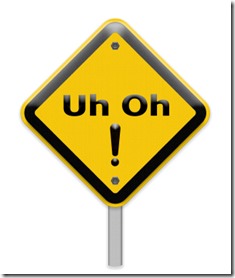Do A Few "Ummms" Actually Make You More Memorable?
The conventional wisdom among media and presentation trainers is that saying “uh” or “um” during an interview or speech can prevent an audience from hearing your point.
In a recent post, I challenged that notion. I argued that verbal filler is a natural part of ordinary spoken communication. Michael Erard, the author of Um…:Slips, Stumbles, and Verbal Blunders, and What They Mean, estimates that about 5 to 8 percent of the words that normal speakers say every day involve an “uh,” “um,” or some other speech imperfection.
In excess, those verbal imperfections can interfere with effective communication. But an occasional “uh” or “um” is unlikely to distract an audience.
In fact, some fascinating research suggests that audiences actually remember more from speakers who do utter an occasional “uh” or “um.”
Here’s a summary of the study from The Beckman Institute for Advanced Science and Technology at the University of Illinois:
Could generations of speech coaches been wrong all these years? New research is showing that speakers shouldn’t discard those “ums” and “ahs” and other speech fillers if they want to be understood by listeners.
Duane Watson of the Cognitive Science group and Scott Fraundorf from his laboratory used a story recall task as part of an experiment that tested the mechanisms by which speech fillers affected memory for discourse. They used natural speech instead of “laboratory speech” and controlled for the extra processing time that fillers provide listeners. They discovered that the fillers actually facilitated recall for listeners.
“One finding that we had is that if you’re listening to a story or a speech, people remember the content better if the person says ‘uh’ and ‘um’ in it than if the story is completely fluent,” Watson said. “This is counter-intuitive, because if you go to a speech coach, they say don’t say uh and um.”
Why Does “Uh” and “Um” Improve Listener Recall?
“The task was for them to listen to it and then tell the story back,” Watson said. “We found that they’re better at it if uh and um is actually there. So we think that maybe those disfluencies are increasing the person’s attention.
“This is speculation, but if the speaker doesn’t know what they’re saying very well, you pay attention more because you think you need to work harder to get it.”
My Advice
Watson’s last line, about the speaker not knowing what they’re saying very well, concerns me. No speaker should ever be in that position. But as he says, that’s speculation, and we can still take a larger point away from his study without getting distracted by his final point.
Here’s my advice: Don’t over-focus on a few uhs and ums along the way. If you do, you’ll probably under-focus on the flaws in your delivery that have an even greater impact on how the audience perceives you.
Of course, there are times that speakers use too many verbal fillers and distract their audiences from hearing their most important messages. If you think that might be happening to you, here’s an exercise that will help.
Thank you to reader Art Aiello, who pointed this story out to me.





Brad:
You can find the full text of that magazine article, The Disfluent Discourse: Effect of filled pauses on recall, for free on PubMed Central. See my blog post and discussion of some data from it at:
http://joyfulpublicspeaking.blogspot.com/2014/02/adding-few-uhs-and-ums-improved-recall.html
Richard
Dear Richard,
Thank you for the link to your excellent post. It seems that the two of us have reached the same conclusion — although I suspect it’s going to take decades before the majority of public speaking coaches and professors render the same verdict.
Thanks for reading my post and leaving the comment,
Brad